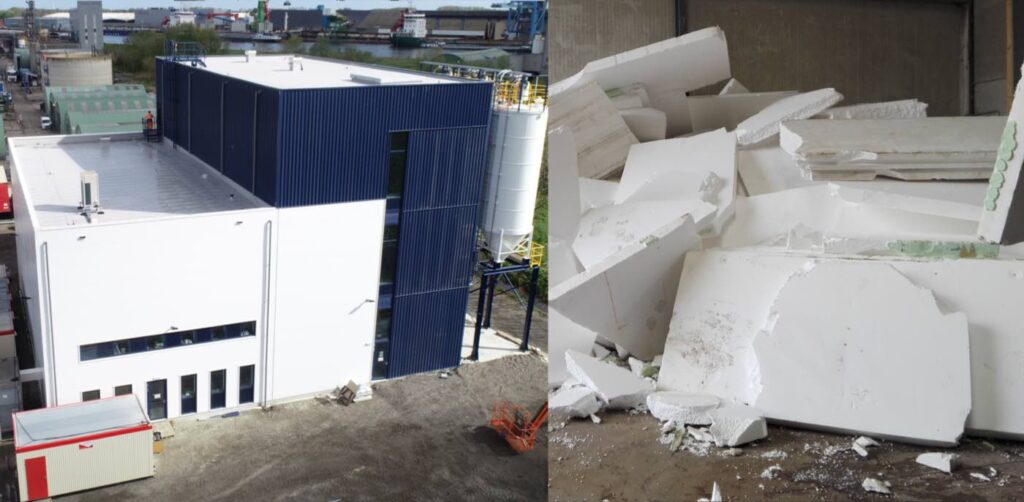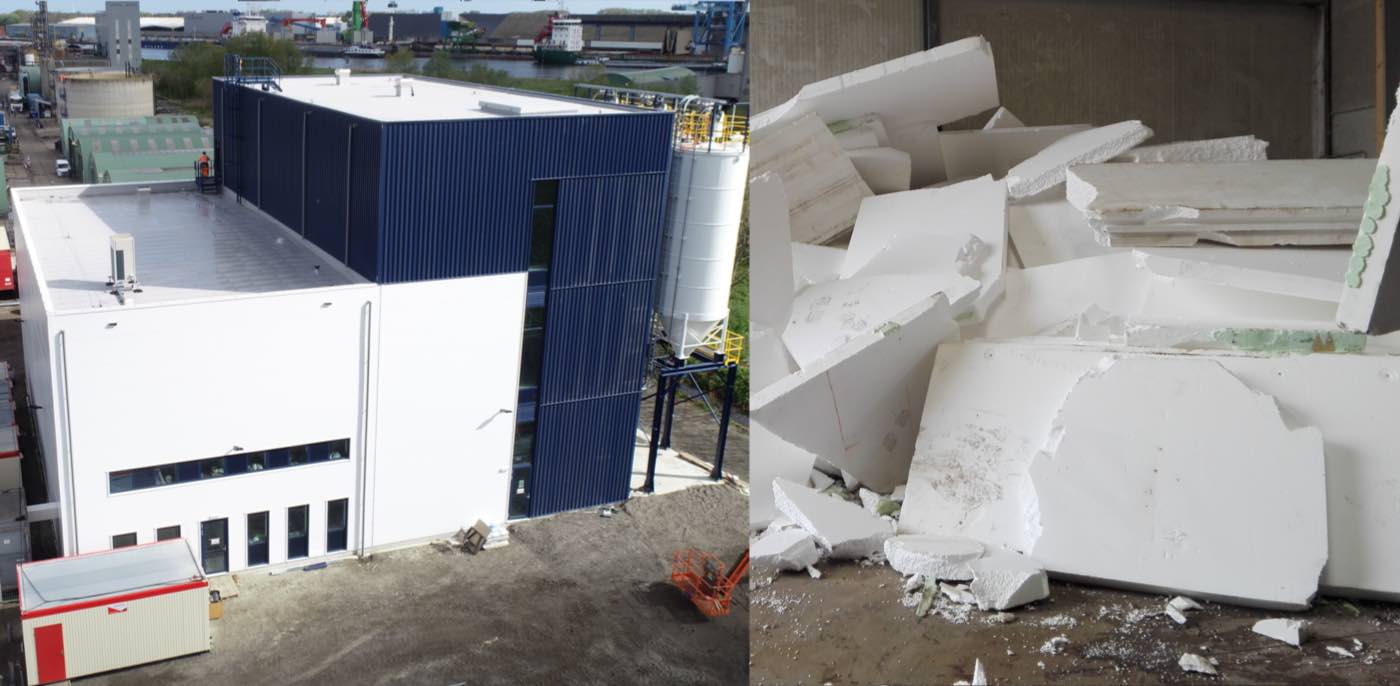Even though styrene occurs naturally in foods such as strawberries, cinnamon, and coffee, when it is strung together with other chemicals to create foam insulation or packaging to protect sensitive electronics, it becomes almost impossible-to-recycle. A second new plant is set to change that in Europe.

Being 98% air, polystyrene foam is not cost-effective to store or ship, but a huge new recycling plant in the Netherlands has overcome this issue in order to recycle expanded polystyrene (EPS) waste.
The PolyStyreneLoop plant in Terneuzen, Netherlands, scheduled to open this week, was built to prove the technical and economic feasibility of a large-scale, closed-loop solution for the recycling of EPS waste.
The PSLoop facility will start by recycling EPS foam insulation using a process based on a technology that turns it into a new high quality raw material. All kinds of impurities, such as cement or glue residues, as well as the additive HBCD, will be safely removed while the valuable bromine is recovered.
RELATED: World’s Largest Wind Turbine Manufacturer Says All Its Blades Will Soon be Fully Recycled
“This plant showcases how the EPS industry is always looking for ways to boost its recycling capabilities,” said Lein Tange, Co-Director of PolyStyreneLoop. “The purpose of this plant is to pave the way for the construction of similar EPS recycling plants in the rest of Europe.”
Benefitting from a European Union grant, it has been built by a Dutch nonprofit organization whose members comprise more than 70 industry representatives from the whole polystyrene foam value chain.
The Terneuzen plant will have the capacity to recycle 3,300 metric tons of polystyrene foam demolition waste coming from Netherlands, Germany, and other countries, proving the technical, and economic viability of a new recycling process in which polystyrene foams containing HBCD can be fully integrated in the circular economy rather than filling up landfills.
CHECK OUT: How to Turn Plastic Waste From Your Recycle Bin Into Profit
“It’s a real plus that we can do this with about the same energy input as mechanical recycling and the energy we use comes solely from windmills,” said Jan Noordegraaf, co-director of the plant.
Though the PSLoop plant will recycle EPS building and construction waste, later, it will also recycle extruded polystyrene, also known as Styrofoam, used to make cups, plates, and packaging.
The Netherlands isn’t the only place EPS is being recycled, in the UK, Molygran has been recycling that nation’s polystyrene, accepting any grade of white expanded polystyrene, “undecorated, clean and dry”. They reported in January 2020 that enthusiastic recyclers were mailing EPS from around the UK, contributing to their staggering total of 37 tons removed from landfills the previous year.
And, because EPS is 98% air, 37 tons is a lot to celebrate…
LOOK: California Highway Has Just Become the First State Road Made From Recycled Plastic in the US
DELIVER This Fantastic Good News to Social Media, Where it Can Be Recycled…




















